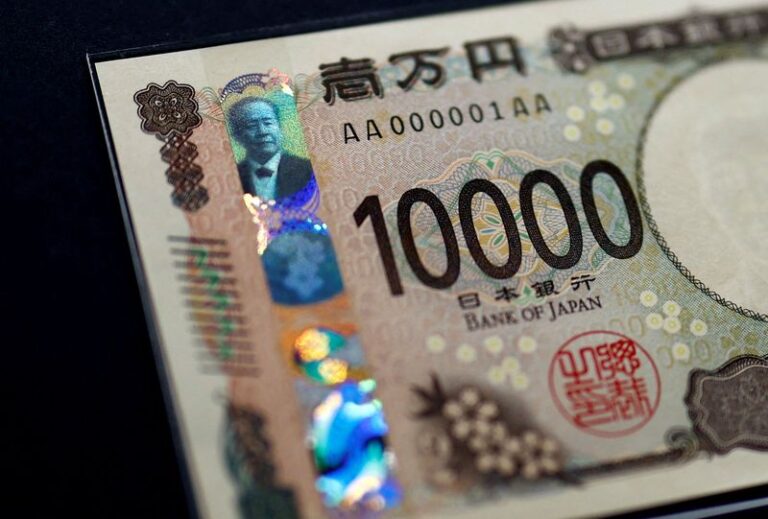By Ankur Banerjee
SINGAPORE (Reuters) -The yen firmed on Monday after Japan’s ruling coalition lost its majority in the upper house as investors braced for a period of policy paralysis and market disquiet in the world’s fourth-largest economy ahead of a deadline on tariff negotiations with the U.S.
The Japanese markets are closed for the day leaving the yen as an indicator of investor angst, with early trading suggesting the election results were mostly priced in by markets.
The yen firmed to 148.46 per dollar, but stayed close to the 3-1/2-month low it hit last week as investors fretted about Japan’s fiscal outlook. The yen nudged higher against the euro to 172.64 and against sterling to 199.03.
Prime Minister Shigeru Ishiba’s Liberal Democratic Party returned 47 seats, short of the 50 seats it needed to ensure a majority in the 248-seat upper chamber in an election where half the seats were up for grabs.
While the ballot does not directly determine whether Ishiba’s administration will fall, it heaps political pressure on the embattled leader who also lost control of the more powerful lower house in October.
Carol Kong, currency strategist at Commonwealth Bank of Australia, said markets likely priced in a much worse outcome for the ruling coalition heading into the election and doubted that the yen could sustain its strength.
“It remains unclear whether Ishiba can indeed survive as the prime minister… and what it means for Japan’s trade negotiations with the U.S. Prolonged political uncertainty will be negative for Japanese assets, including the JPY.”
The election result, while not entirely a shock to markets, also comes at a tricky time for a country trying to get a tariff deal with U.S. President Donald Trump before an Aug. 1 deadline.
Japanese government bonds (JGBs) plunged last week, sending yields on 30-year debt to an all-time high, while the yen slid to multi-month lows against the U.S. dollar and the euro.
If Ishiba resigns, the political maelstrom could be a trigger for foreign investors to sell Japanese shares and the yen, analysts said.
TARIFF UNCERTAINTY
Investor focus has been firmly on Trump’s global tariff salvos, with a Financial Times report last week indicating the U.S. president was pushing for steep new tariffs on European Union products.
U.S. Commerce Secretary Howard Lutnick said on Sunday he was confident the U.S. can secure a trade deal with the European Union, but said August 1 was a hard deadline for tariffs to kick in.
The euro was 0.12% lower at $1.16165, while sterling last fetched $1.13417. The dollar index, which measures the U.S. currency against six others, was at 98.352.

